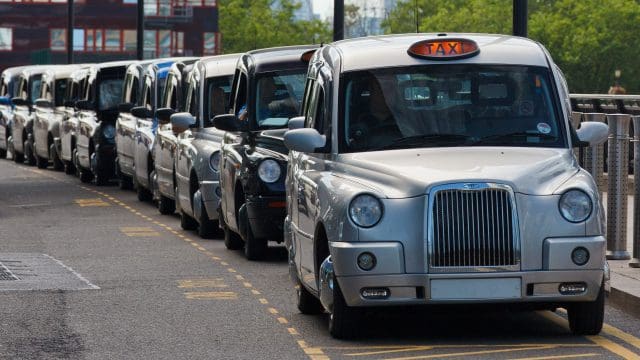There are times when taxi fleet insurance is a better option for taxi companies than taking out public hire insurance or private hire insurance for individual drivers.
A fleet usually includes two or more vehicles used for either private or public hire and can include a mixture of cars and vans. This gives them the flexibility to be able to cater for all types of fares from short trips in and around towns and cities, to longer journeys such as airport runs.
Different policies suit different taxi drivers and taxi firms and there are several factors to consider when calculating taxi insurance premiums. For companies with several taxis, a fleet policy could make a difference to their business.
Patons Insurance fleet account manager Stephen Shearer explains the factors insurance companies consider when calculating premiums.
He said: “The biggest factors used by underwriters for pricing is the average claims cost per vehicle, which is calculated by the total paid and outstanding on claims divided by the number of vehicles on cover. Factors such as vehicle types can make minor differences.”
As with other taxi insurance policies, there are steps fleet owners can take to keep costs down.
Stephen said: “The main thing they can do is to implement technology to their fleet such as cameras. However, the best option is telematics devices which allow the fleet owner get data from and actively use it to improve driver behaviours.”
Whatever type of taxi insurance cover a driver has in place, consistently driving safely is the main way to reduce insurance premiums. Having proof such as telematics data is a good way of demonstrating this to insurance companies and insurance brokers.
Among the other benefits of taking out fleet insurance is that it can help taxi companies which operate with large numbers of vehicles.
Stephen said: “Being able to plan and budget for the whole year, along with the ease of management, is the main factor because it allows the ability to self-authorise drivers within a set of criteria. For example, they have to be at least 25 years old and have held a UK driving licence for at least two years. They can stipulate that drivers can have up to six minor points on their licence and allow all drivers to drive all vehicles in the fleet without the need to notify their insurer.
“Another big win is that with any new vehicles, fleet owners know exactly the premium they will be paying as all fleet insurers will pro-rata the annual premium, unlike single-vehicle policies which would mean the insured would have to spend time on the phone to their insurer and any minor changes could result in additional premiums and administration fees.”
Taking out fleet policies with an insurance broker such as Patons gives fleet owners greater choice.
Stephen said: “At Patons Insurance, we are not just your vanilla taxi broker. We offer an overall package to the trade from new and used car sales to enable fleet owners to replenish their vehicles.
“We also have our in-house claims management team to provide updates for those unfortunate enough to have had claims and offer replacement vehicles if needed to those involved in a non-fault accident.”
Fleet insurance policies help larger taxi firms to be more efficient and flexible and concentrate on picking up and dropping off fares knowing they are in safe hands.




